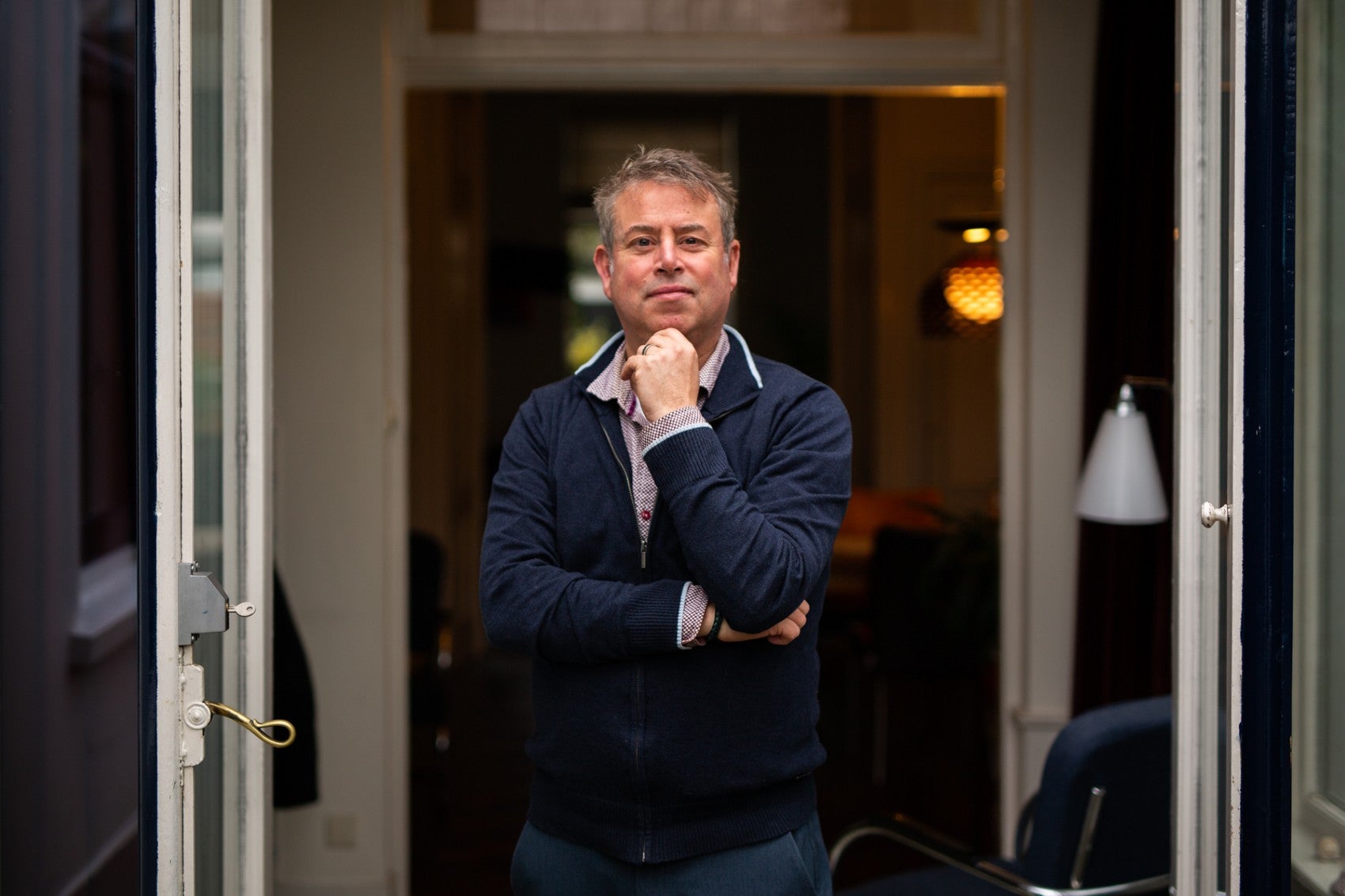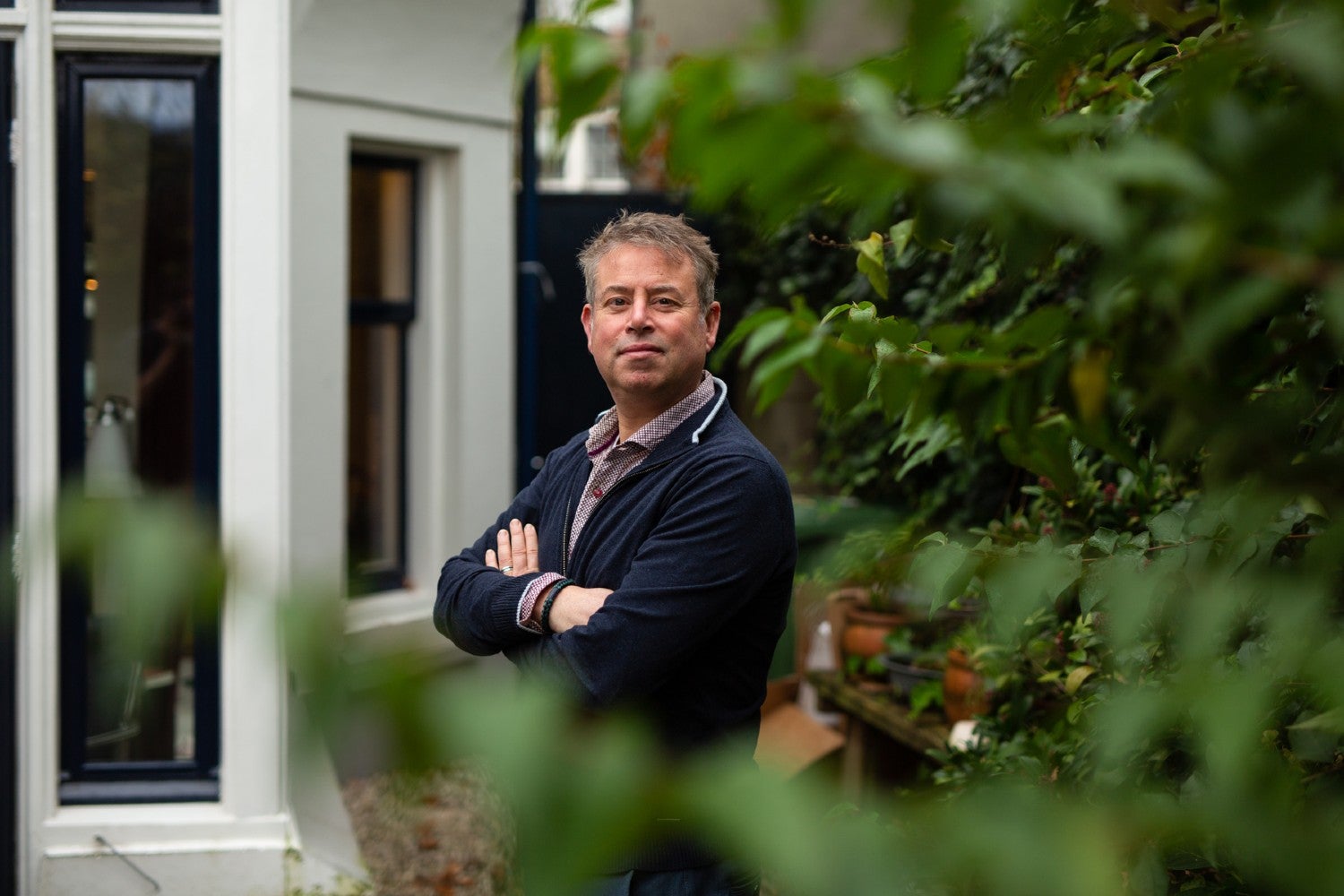We can find answers to contemporary questions in human evolution, contends Mark van Vugt, evolutionary psychologist at VU Amsterdam. His book Lucy, Darwin & Lady Gaga discusses this.
How did evolution come up as a research area?
„Actually, quite by chance. I was conducting research at an English university where I used to work and was struggling with various questions regarding leadership and cooperation. I came in contact with behavioural biologists who were researching leadership in elephants as well as examining how social insects, such as ants, cooperate. If we remove all the cultural overtones from people, certain basic conditions remain under which people start to cooperate, just like other species of animals. I missed this level in psychology, which actually mainly assumes that mankind is a unique species that operates independent of evolution and the rest of nature. Since then, I’ve been looking at mankind in a different way and conducting research differently."
You started out as an organizational psychologist. How does that go together with the theory of evolution?
„Man is a social animal and has always lived in groups. Such groups were already organized as far back as prehistoric times. There had to be enough food, work needed to be shared and leaders would decide when to emigrate from one side of the savanna to the other. My research focuses specifically on leadership. As followers, what expectations do we have of leaders? What capacities do they need to have when we find ourselves, like now, in a crisis? We try to navigate in modern organizations using our instinct and that can result in us instinctively following the wrong leaders, or in our managers giving us a headache."
In your book Lucy, Darwin and Lady Gaga you write that, in science, brain science is dominant. What do you mean by that?
„It’s a good thing that the brain is used as the starting point for a lot of research, but it’s important to ask yourself what questions you’re answering with this. The brain works as a mechanism. It responds to signals from the environment, takes decisions and controls the body and our behaviour. But neuroscience mainly focuses on the ‘how does the brain work?’ question. My colleague neuroscientists are conducting really useful investigations and this is popular in the media."
„However, the more interesting questions are actually, ‘why does our brain work like this?’ What is the function of that huge cauliflower in our head, which problems does the brain solve well and which does it have difficulty with? Why do we have language and love? Why does it hurt if we’re excluded? The ‘why’ question goes much deeper and the average neuroscientist cannot resolve this."
Is that also the answer to the question as to why evolutionary theory is important?
„That ‘why’ question helps us understand things. The most important lesson from evolutionary psychology is to make the familiar look strange. When I did my PhD in social and organizational psychology, I was interested in the issue of altruism. When do people act selflessly? The answer to this was when they feel empathy. But when do they feel empathy? When they feel people are similar to them."
„If you look deeper and examine why people actually empathize and what function this has, you actually see that similarity may be indicative of kinship. If someone is similar to you it is logical, in an evolutionary sense, that you behave altruistically as you probably share genes with that person. Fundamental questions about our behaviour can be answered via evolutionary theory, but you do need to understand something about biology.

Have you come across issues that cannot be answered?
„It’s rather difficult to find an evolutionary explanation for behaviour that doesn’t occur often and is therefore not commonplace. If you examine suicide from the evolutionary theory aspect, you probably won’t get far because, what’s the function of it? Why would people voluntarily remove their gene pool? For some races, such as the Inuit, it does sometimes happen that an older individual walks into a snowstorm if they feel they’re being a burden when there’s a shortage of food."
„But suicide among young people is a puzzle and it’s perhaps not a goal in itself, because most of the attempts don’t succeed. This suggests to me that it is possibly not someone’s intention to end his or her life. It’s more a signal that the person does not feel valued and wants to renegotiate his or her role in, for example, the family."
„However, evolutionary theory doesn’t suggest that all our behaviour or characteristics are functional. Certain things are appendages or by-products of evolution, such as the colour of your eyes or your favourite food. There are no evolutionary advantages to preferring pizza over sushi and this is mainly determined by the culture in which you grow up."
Can you use evolutionary theory to make pronouncements about the future?
„I think that as behavioural scientists, we do have a societal task to make predictions about the future. If we don’t do this, who else will? As evolutionary psychologists, we were able to make predictions following the coronavirus outbreak. We have been conducting research for several years on how infectious diseases influence our behaviour. And we know that this is also very important for other animal species."
„For instance, apes isolate themselves from their conspecifics if they are ill and are avoided by the group. At the start of the pandemic and based on previous research, we predicted that it was highly likely that society would be organized more strictly, that stricter rules about interaction would be developed and that most people would stick to these. We also predicted that the government would become more authoritarian and would centralise power during this crisis. This all came to pass. The pandemic has transformed us into a kind of China-in-the-North-Sea."
Since your research, do you also see more evolutionary explanations for your own behaviour?
„Absolutely. I’m often confronted by my own instinctive response that gets in the way at work or in my personal life. Take football, for instance. As parent, I feel personally wronged when I’m standing by the pitch and someone commits a foul against my son. And that’s logical because he’s carrying fifty per cent of my genes. Every parent would, so to speak, commit murder to protect their own child. Knowledge of evolutionary psychology teaches you to look more objectively at your own behaviour. I know where it comes from and that I’m meant to control myself. In such situations I just count to ten."








